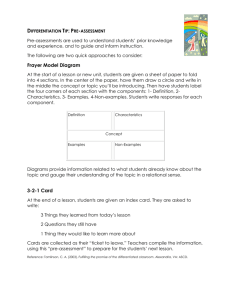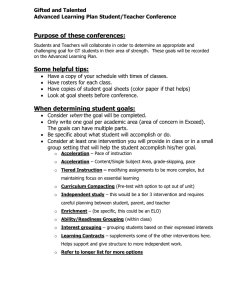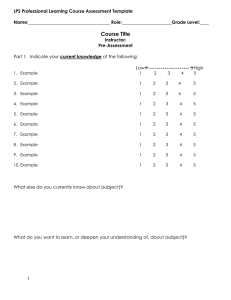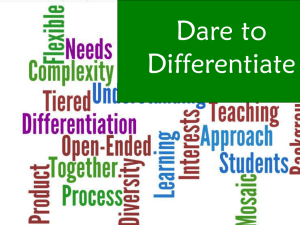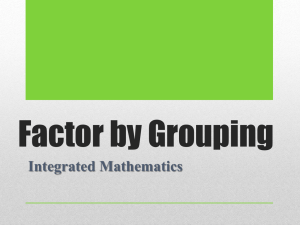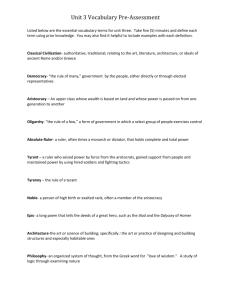teaching strategies for differentiation of instruction
advertisement
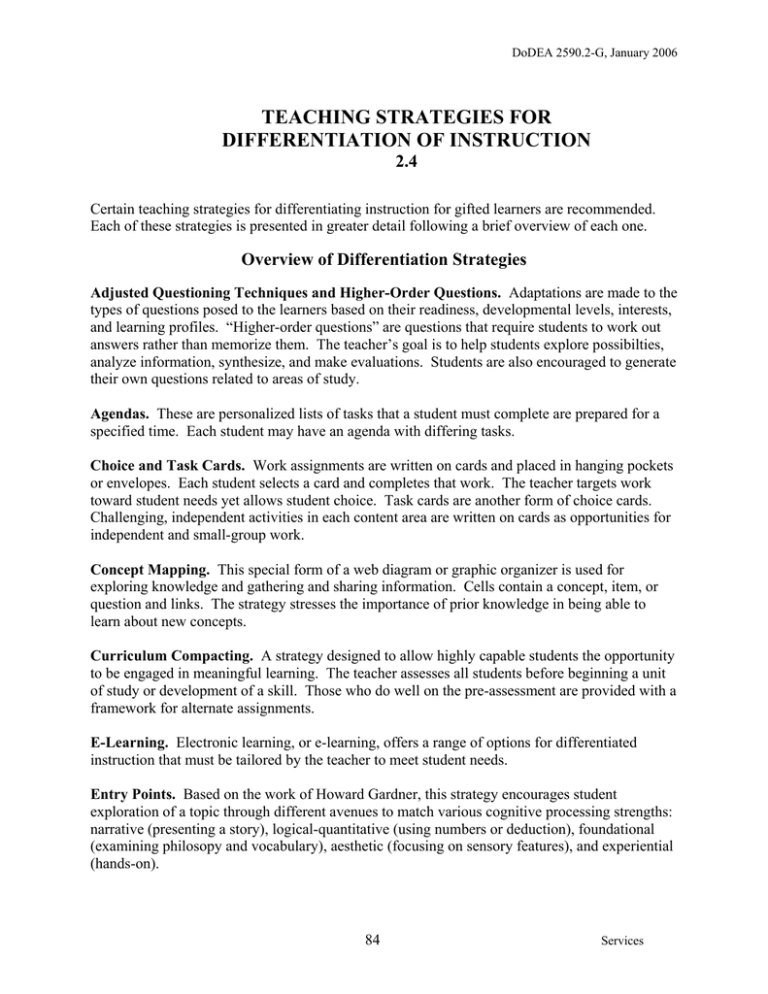
DoDEA 2590.2-G, January 2006 TEACHING STRATEGIES FOR DIFFERENTIATION OF INSTRUCTION 2.4 Certain teaching strategies for differentiating instruction for gifted learners are recommended. Each of these strategies is presented in greater detail following a brief overview of each one. Overview of Differentiation Strategies Adjusted Questioning Techniques and Higher-Order Questions. Adaptations are made to the types of questions posed to the learners based on their readiness, developmental levels, interests, and learning profiles. “Higher-order questions” are questions that require students to work out answers rather than memorize them. The teacher’s goal is to help students explore possibilties, analyze information, synthesize, and make evaluations. Students are also encouraged to generate their own questions related to areas of study. Agendas. These are personalized lists of tasks that a student must complete are prepared for a specified time. Each student may have an agenda with differing tasks. Choice and Task Cards. Work assignments are written on cards and placed in hanging pockets or envelopes. Each student selects a card and completes that work. The teacher targets work toward student needs yet allows student choice. Task cards are another form of choice cards. Challenging, independent activities in each content area are written on cards as opportunities for independent and small-group work. Concept Mapping. This special form of a web diagram or graphic organizer is used for exploring knowledge and gathering and sharing information. Cells contain a concept, item, or question and links. The strategy stresses the importance of prior knowledge in being able to learn about new concepts. Curriculum Compacting. A strategy designed to allow highly capable students the opportunity to be engaged in meaningful learning. The teacher assesses all students before beginning a unit of study or development of a skill. Those who do well on the pre-assessment are provided with a framework for alternate assignments. E-Learning. Electronic learning, or e-learning, offers a range of options for differentiated instruction that must be tailored by the teacher to meet student needs. Entry Points. Based on the work of Howard Gardner, this strategy encourages student exploration of a topic through different avenues to match various cognitive processing strengths: narrative (presenting a story), logical-quantitative (using numbers or deduction), foundational (examining philosopy and vocabulary), aesthetic (focusing on sensory features), and experiential (hands-on). 84 Services DoDEA 2590.2-G, January 2006 Flexible Grouping. A strategy that helps promote learning and interpersonal communication by ensuring that student groups are structured in different ways to meet varied goals. The teacher may assign small instructional groups, or the students may choose their groups according to interest. Flexibility of grouping arrangements is an important feature of a differentiated classroom. Graphic Organizers. This is a cognitive map in which important aspects of a concept, topic, or unit of study are identified and arranged in a visual pattern to present information, review material, integrate prior knowledge with new information, demonstrate relationships between concepts, and retrieve information related to a given topic. Independent Study. Highly motivated, self-directed students who demonstrate interest in advanced research can benefit from guided independent study experiences. The teacher and student work together to identify topics of interest and plan a method of independent investigation that culminates in a product that demonstrates learning outcomes. Topic choices are related to the general curriculum. Learning Centers. Different areas in the classroom are designated as centers for learning. Centers may be assigned or chosen, and students work on various differentiated tasks. Pre-assessment. The teacher assesses the students before instruction to determine what they know. The teacher uses the results of the pre-assessment to design instruction. Social Action Projects. Students research important social issues related to curricular areas of study and plan a course of action to help solve related problems. By engaging in such projects, students gain the knowledge, values, leadership experience, and skills necessary to participate in social change. Socratic Dialogue. This strategy uses open-ended questioning to encourage higher-level discussion. The teacher acts as a facilitator and guides students in using critical thinking, active listening, and communication skills. The strategy is discussed more fully in the Socratic Seminar Model in this program guide. Tiered Assignments. This strategy provides varied levels of activities and assignments to ensure that students explore and practice concepts at a level that builds on their prior knowledge and that prompts continued growth rather than repetition of prior knowledge. Diagnostic assessment needs to be the foundation of these assignments. 85 Services DoDEA 2590.2-G, January 2006 Figure 7. Suggested Grade Levels for Using Teaching Strategies Grade Suggested Strategies Kindergarten Adjusted Questions Choice/Task Cards Flexible Grouping Learning Centers Pre-assessment Tiered Assignment Grade 1 Adjusted Questions Choice/Task Cards Flexible Grouping Learning Centers Pre-assessment Tiered Assignment Grades 2–3 Adjusted Questions Choice/Task Cards Curriculum Compacting Entry Points Flexible Grouping Graphic Organizers Independent Study Learning Centers Pre-assessment Tiered Assignment Grades 4–5 Adjusted Questions Agenda Choice/Task Cards Curriculum Compacting E-Learning Entry Points Flexible Grouping Graphic Organizers Independent Study Learning Centers Pre-assessment Tiered Assignment Grades 6–8 Adjusted Questions Agenda Choice/Task Cards Curriculum Compacting E-Learning Entry Points Flexible Grouping Graphic Organizers Independent Study Learning Centers Pre-assessment Tiered Assignment Grade 9–12 Adjusted Questions Agenda Choice/Task Cards Concept Mapping Curriculum Compacting E-Learning Entry Points Flexible Grouping Graphic Organizers Independent Study Learning Centers Pre-assessment Social Action Projects Socratic Dialogue Tiered Assignment 86 Services
